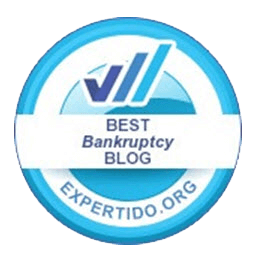Recently, National Public Radio obtained a report from the Government Accountability Office (GAO), a governmental watchdog agency. It was a review of the Temporary Expanded Public Service Loan Forgiveness (TEPSLF) program, which Congress created last year to make it easier and more straightforward to apply for public service-based student loan forgiveness.
Unfortunately, the report found that, during the temporary expansion's first year, the Department of Education denied 99% of all applications for the program.
Congress set aside $700 million to pay off student loans for people working in public service. The Education Department only spent $27 million of that — apparently mostly on administration. Of approximately 54,000 applications, only 661 were approved.
The Public Service Loan Forgiveness (PSLF) program isn't working
The TEPSLF program was created in response to a crisis among student loan borrowers who had relied on the PSLF to wipe out their loans after a period of public service. Many were working and paying the required 120 months (10 years) of loan payments, only to be told — at the end of the 10 years — that they had been in the wrong repayment plan and didn't qualify.
TEPSLF was meant for just these borrowers. But many who tirelessly paid down loans they thought were in PSLF are being told that they must apply for PSLF again, which they already know they don't qualify for. In fact, 71% of all TEPSLF applicants are denied for having failed to properly apply for PSLF.
Perhaps the most frustrating thing about the problem is that Congress intended this to be easy. When it passed the TEPSLF program, it stated in the law that, “the Secretary shall develop and make available a simple method for borrowers to apply for loan cancellation.”
Some lawmakers argue that the Education Department hasn't run the program competently. Hearings are planned.
What can I do about my student loans?
If you're like many people, you owe more in student loans than you can afford to repay. Unfortunately, it's nearly impossible to get your student loans discharged in bankruptcy. What are your options now?
If you have been denied for PSLF or TEPSLF, you have the right to appeal your denial. Unfortunately, the Education Department has not made this easy. Call the agency and specifically ask how to appeal.
Contact your member of Congress. They may be able to get your application moving if it is stalled.
Consider declaring bankruptcy on your other debt. Although you will still have your student loans (and any other debt that doesn't qualify for bankruptcy), most of your other debts do qualify. Declaring bankruptcy on your qualifying debts can make it easier to pay off the ones that don't qualify.



